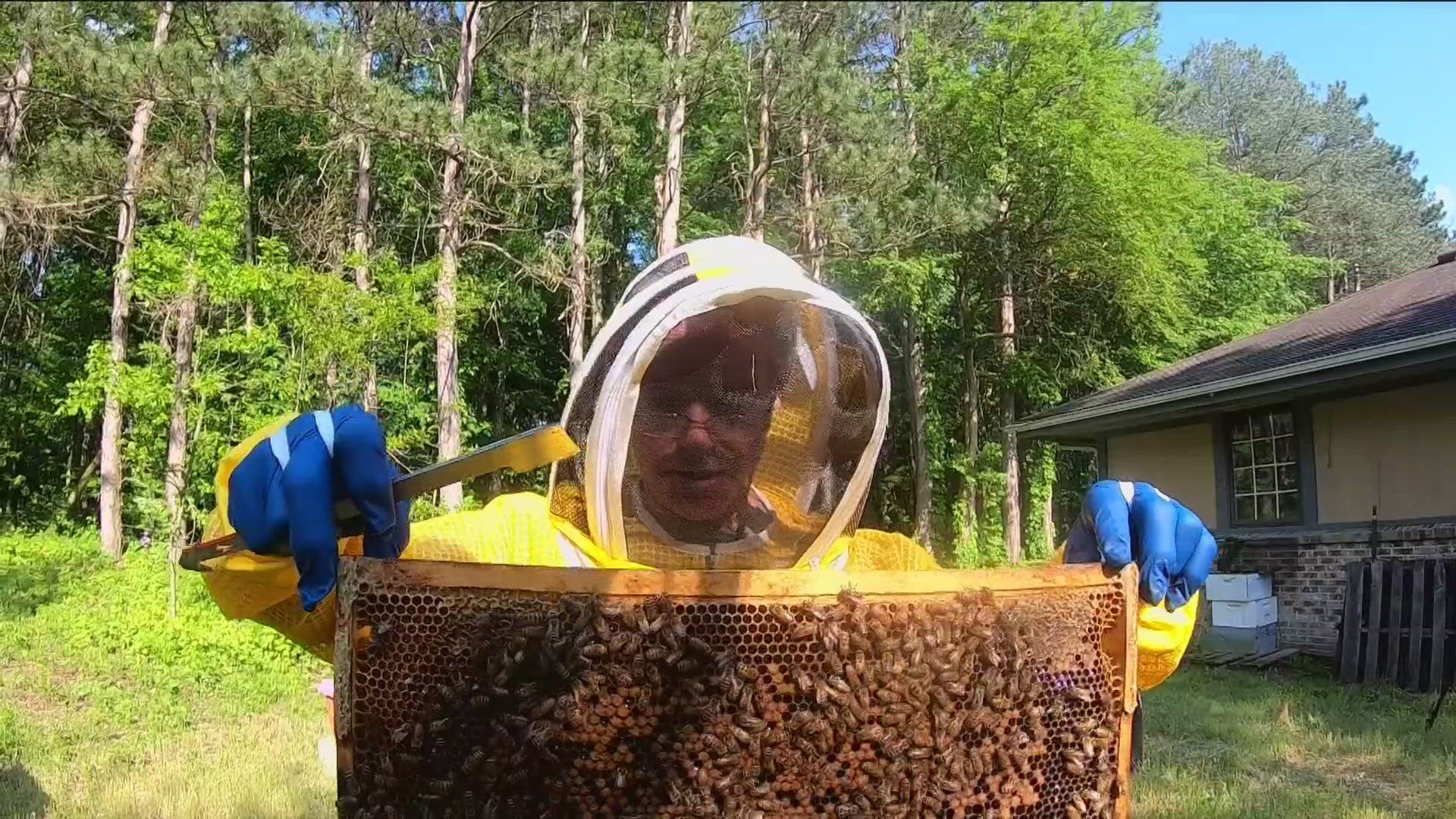SWANTON, Ohio — For many of us, the simple honey bee is something we only associate with honey and painful stings.
But beekeepers understand their impact goes much further.
"If you don't have your pollination for your crops and stuff like that, you're going to see less food on the table," said Becky Elendt, a Swanton-area beekeeper.
Honey bees pollinate 15 billion dollars worth of crops in the United States each year, according to a report from the U.S. Department of Agriculture.
It's that type of impact that got Roger Myers to start Myers Honey in Swanton 15 years ago.
"We moved out here to the country and we had no bees pollinating our garden," Myers said. "We had a big garden and no pollinators, so a friend got me started with bees. One hive turned into two, turned into five, turned into 10. Pretty soon you have a little business going and one thing leads to another and now we have a full-time operation."
Myers has 100 colonies of bees, with each containing 50,000-60,000 bees in it. His bees can produce up to 40 pounds of honey a week — a task not easily done as each bee has its own job to repopulate and produce honey.
They also have to pollinate, grow larvae, feed babies and welcome new bees to the world.
"It's a lot of work," Myers said. "It's turned into a full-time job."
Ohio State University says bees native to Ohio have been on the endangered species list since 2017.
"The bees are struggling overall, but with proper management, you can succeed in beekeeping," Myers said. "But it does take some work."
Not all of the credit for that work goes to Myers, though.
"People say 'oh your honey is so good!', and I tell the people: 'I'll go back and tell the girls because all I did was take the honey out of a hive and put it in a bottle.'"
For people interested in learning more about bees, the city of Adrian is hosting the Bee Day Festival on Saturday at Saint John's Lutheran Church from 10 a.m. to 4 p.m.

